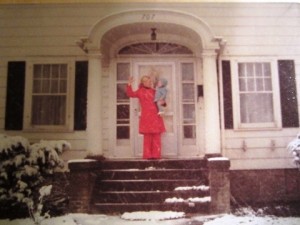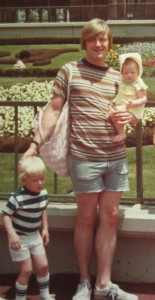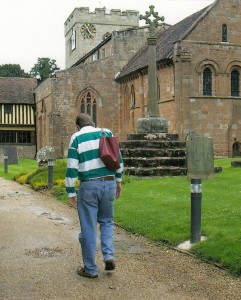On Friday I drove the 90 miles from southwest Michigan to Chicago, back to a place I call “Nate’s hospital.” It’s the place where we learned he had terminal cancer, where we drove the long round trip 14 times for radiation treatments, and where we met Dr. Ross Abrams.
Dr. Abrams had the difficult job of delivering one piece of bad news after another to our family as Nate struggled through his 6 weeks of cancer. The doctor also positioned himself to be our soft place to fall after each new (and always bad) development. Somehow, in the 2½ years since those dark days, the doctor and I have found enough common ground to become friends.
The relationship is based on respect for one another, fleshed out in hour-long conversations that take place only once every few months. All of our meetings are at Nate’s hospital. This time as I arrived to connect with Dr. Abrams he said, “Let’s talk upstairs in the deli rather than in my office.”
As I followed him through a labyrinth of halls, everything suddenly looked familiar. And as we came to the deli, which was full of medical personnel eating breakfast in their scrubs and white coats, a Nate-memory swallowed me up. I’d sat in that place before on one of Nate’s most difficult cancer days, and the feelings of confronting a hopeless disease came rushing back.
Nate’s brother had accompanied us to radiation that day, after which Nate was scheduled for a full body bone scan, the kind that requires an injection of dye beforehand. Those three appointments (for the injection, the radiation, and the scan) were supposed to take 4 hours total, but a big delay between appointments #2 and #3 found us waiting two extra hours.
That’s when Nate, Ken, and I ended up in the deli, a beautiful facility well stocked with goodies. My memories of that visit are only of sadness, frustration, and a husband in pain. Unbeknownst to us that day, Nate wouldn’t live out the month.
So this last Friday when Dr. Abrams and I sat down at a deli table with our coffees, it was difficult to focus forward rather than back. We talked about the sloppy realities of birth and death, marveling at how these two events have much in common. We touched on life’s disappointments and the unwelcome challenges that come to us. And we agreed that many of these things are tests from God.
I am an evangelical Christian, and Dr. Abrams is an orthodox Jew. Each of us knows what the other believes, and we disagree on many of the religious basics. So why do we keep meeting? What’s the point of our conversations? I’m not sure. Maybe it’s because I’m curious about his faith, and he’s curious about mine.
Whatever the reason, I have a hunch God is at the center of it.
“If someone asks about your Christian hope, always be ready to explain it. But do this in a gentle and respectful way.” (1 Peter 3:15-16)








